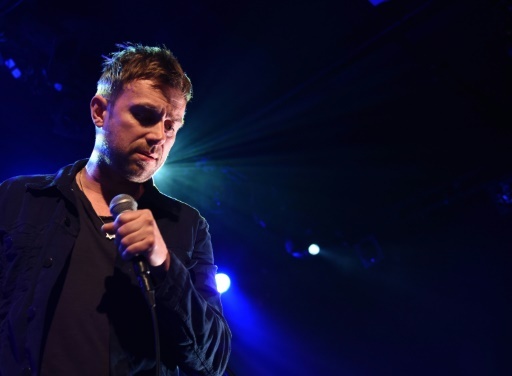"The crisis in the country and the plight of the refugees forced to flee their homes has inspired this special concert, reuniting the musicians with guests from the West," said the 14-18-NOW organisers.
The event will highlight the 1916 Sykes-Picot Agreement, which divided the Middle East into Western spheres of influence, and which the organisers said "fostered instabilities... that continue to cause conflict today."
Albarn, frontman of Blur, said he had "watched from a distance and felt utterly helpless, wondering about all of the lovely people I've got to know" as orchestra members fled Syria while it descended into civil war following the 2011 Arab Spring uprisings.
The commemorations will comprise 80 projects by 140 artists from 25 countries, and will run between March 22 and November 18.
Designer Vivienne Westwood will contribute to "Fashion & Freedom", an exhibition at Manchester Art Gallery in north-west England featuring "contemporary pieces inspired by the profound changes in women's dress that occurred during the First World War."
More than 900,000 blood-red ceramic poppies filled the moat of the Tower of London in 2014 to honour British forces killed in World War I, and the hugely popular installation -- which attracted 5 million visitors -- is to hit the road for 2016.
The poppies will be exhibited at St Magnus Cathedral in Kirkwall on the Scottish island chain of Orkney from April 22 to June 12 to commemorate the Battle of Jutland, the largest naval battle of the "Great War" which claimed the lives of almost 9,000 men.
They will also be shown at Lincoln Castle in England, Caernarfon in north Wales and at the Black Watch Museum in Perth, east Scotland.
The poppy has been a symbol of remembrance for Britain's war dead since the flowers grew on the battlefields of northern Europe during the 1914-18 "war to end all wars" which killed 10 million troops.
-------------------------------------------------------------------------------------------------
The event will highlight the 1916 Sykes-Picot Agreement, which divided the Middle East into Western spheres of influence, and which the organisers said "fostered instabilities... that continue to cause conflict today."
Albarn, frontman of Blur, said he had "watched from a distance and felt utterly helpless, wondering about all of the lovely people I've got to know" as orchestra members fled Syria while it descended into civil war following the 2011 Arab Spring uprisings.
The commemorations will comprise 80 projects by 140 artists from 25 countries, and will run between March 22 and November 18.
Designer Vivienne Westwood will contribute to "Fashion & Freedom", an exhibition at Manchester Art Gallery in north-west England featuring "contemporary pieces inspired by the profound changes in women's dress that occurred during the First World War."
More than 900,000 blood-red ceramic poppies filled the moat of the Tower of London in 2014 to honour British forces killed in World War I, and the hugely popular installation -- which attracted 5 million visitors -- is to hit the road for 2016.
The poppies will be exhibited at St Magnus Cathedral in Kirkwall on the Scottish island chain of Orkney from April 22 to June 12 to commemorate the Battle of Jutland, the largest naval battle of the "Great War" which claimed the lives of almost 9,000 men.
They will also be shown at Lincoln Castle in England, Caernarfon in north Wales and at the Black Watch Museum in Perth, east Scotland.
The poppy has been a symbol of remembrance for Britain's war dead since the flowers grew on the battlefields of northern Europe during the 1914-18 "war to end all wars" which killed 10 million troops.
-------------------------------------------------------------------------------------------------









 Home
Home Politics
Politics











